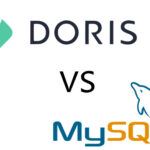MySQL
MySQL is a popular open-source relational database management system (RDBMS) known for its speed and ease of use. It is a good choice for web applications that require fast read and write performance.
Performance highlights of MySQL:
- High-speed read performance: MySQL excels in handling simple read queries, making it a good choice for applications that rely heavily on retrieving data from the database.
- Efficient write performance: MySQL’s write performance is also impressive, making it suitable for applications that frequently update data.
- Scalability: MySQL can handle large datasets and high traffic volumes, making it a scalable solution for growing businesses.
PostgreSQL
PostgreSQL is another popular open-source RDBMS known for its robustness and adherence to SQL standards. It is a good choice for applications that require complex data modeling and strong data integrity.
Performance highlights of PostgreSQL:
- Complex query handling: PostgreSQL excels in handling complex queries, including those that involve joins, subqueries, and aggregations.
- Data integrity: PostgreSQL offers strong data integrity features, such as referential integrity constraints and ACID compliance, making it a good choice for applications that require reliable data storage.
- Extensibility: PostgreSQL is highly extensible, allowing users to add custom functions and data types to meet their specific needs.
Choosing between MySQL and PostgreSQL
The best choice for you will depend on your specific needs. If you need a database for a simple web application with high read and write performance, MySQL is a good option. If you need a database for a more complex application that requires strong data integrity and complex query handling, PostgreSQL is a better choice.
Here is a table summarizing the key performance differences between MySQL and PostgreSQL:
| Feature | MySQL | PostgreSQL |
|---|---|---|
| Read performance | High | Very high |
| Write performance | High | High |
| Complex query handling | Good | Very good |
| Data integrity | Good | Very good |
| Scalability | Good | Very good |
| Extensibility | Good | Very good |
Ultimately, the best way to decide which database is right for you is to try both and see which one performs better for your specific application.
In addition to the performance considerations discussed above, you may also want to consider the following factors when choosing between MySQL and PostgreSQL:
- Community and support: Both MySQL and PostgreSQL have large and active communities, so you should be able to find plenty of support if you need it. However, MySQL generally has a larger community and more third-party tools available.
- Cost: Both MySQL and PostgreSQL are open-source software, so there are no licensing fees to worry about. However, you may need to pay for commercial support if you need it.
- Deployment options: Both MySQL and PostgreSQL can be deployed on-premises or in the cloud. However, MySQL is generally more popular for cloud deployments, while PostgreSQL is more popular for on-premises deployments.
Benchmark Results
Query: SELECT AdvEngineID, COUNT() FROM hits WHERE AdvEngineID <> 0 GROUP BY AdvEngineID ORDER BY COUNT() DESC;

Query: SELECT RegionID, SUM(AdvEngineID), COUNT(*) AS c, AVG(ResolutionWidth), COUNT(DISTINCT UserID) FROM hits GROUP BY RegionID ORDER BY c DESC LIMIT 10;

Query: SELECT UserID, SearchPhrase, COUNT() FROM hits GROUP BY UserID, SearchPhrase ORDER BY COUNT() DESC LIMIT 10;








Leave a Reply